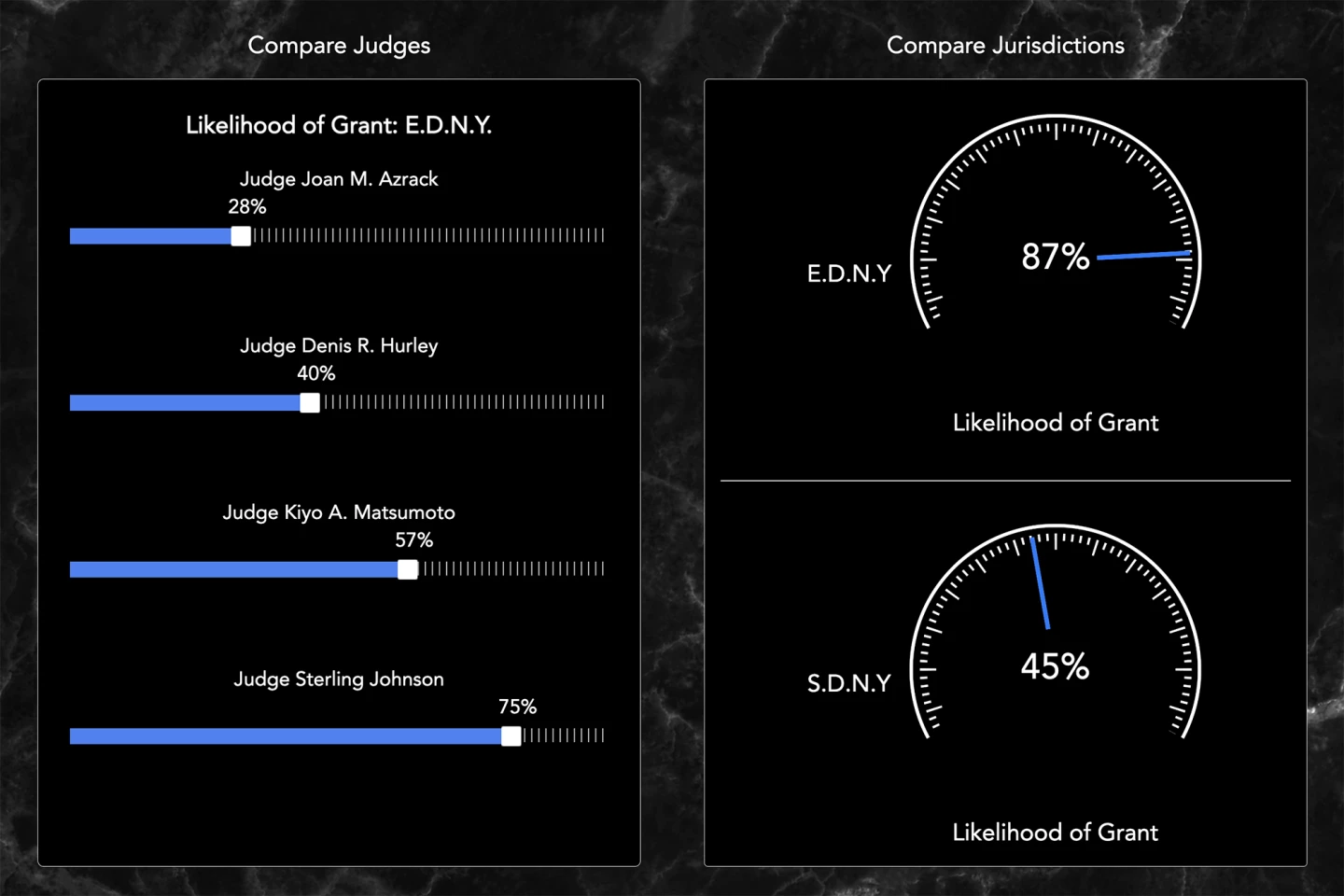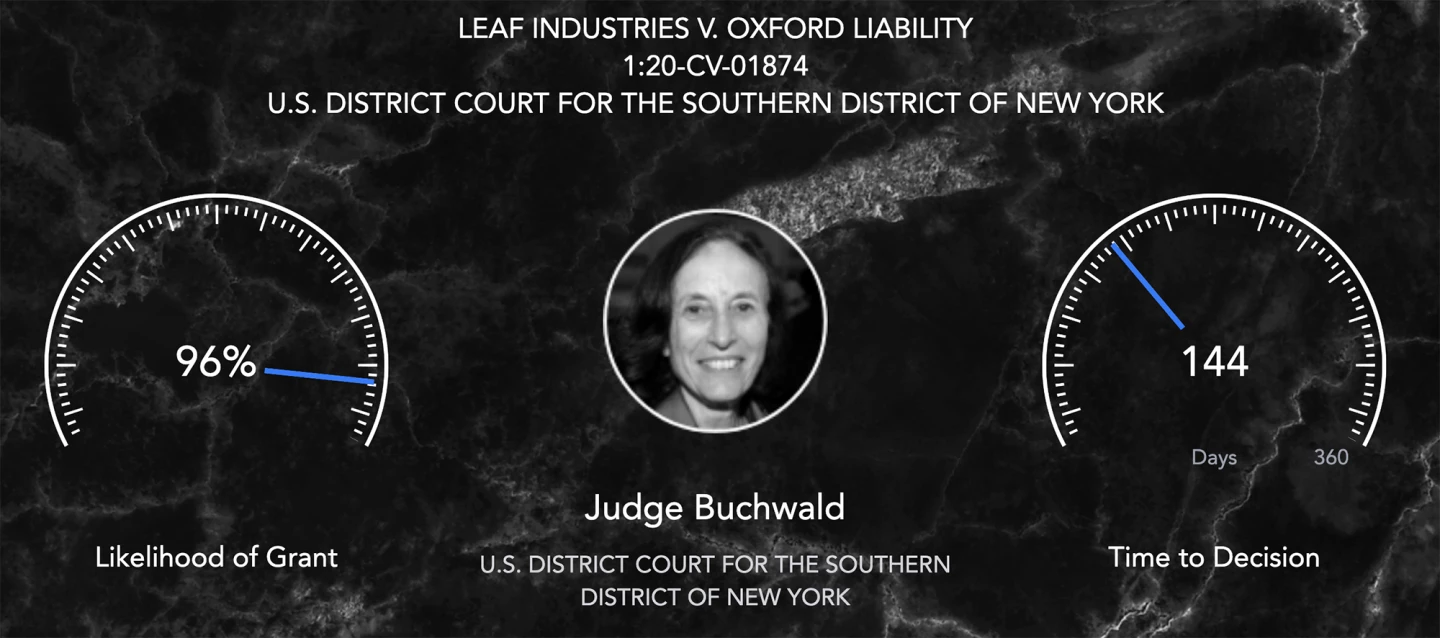An AI-powered algorithm advises lawyers and plaintiffs on how best to invest their resources by predicting how judges will rule in civil cases based on their net worth, political affiliation, and where they went to law school. It’s turned the art of seeking out a sympathetic judge, or judge shopping, into a precise science.
‘Judge shopping’ is the practice of finding a judge – or replacing one that’s already been assigned – to hear a case in the hopes that it’ll lead to a more favorable outcome. While it’s an open secret in the legal profession, judge shopping is frowned upon as an abuse of process, affording a perceived tactical benefit that compromises the integrity of the justice system.
The tactic made headlines earlier this year when it was reported that US anti-abortion groups were filing challenges to the FDA’s approval of an abortion-inducing drug in Amarillo, Texas, rather than Maryland, where the FDA is headquartered. It’s no coincidence that Amarillo was chosen as the venue: the smallish city has one federal courthouse with one federal judge presiding, the deeply conservative US District Court Judge Matthew Kacsmaryk.
Now, AI has made judge shopping a whole lot easier. In January 2023, Pre/Dicta, the only litigation analytics platform that makes predictions about the outcome of federal lawsuits, acquired Gavelytics, a judicial analytics platform for state courts, where 95% of all US cases are heard.

Pre/Dicta is an AI-powered dataset that, instead of taking into account the relevant law or the facts of the case, draws on a judge’s biographical details – net worth, political affiliation, who appointed them, education, and work experience – and their decision history to predict how they’ll rule in civil cases. Designed to help lawyers and plaintiffs decide how best to invest their time and resources, Pre/Dicta claims to be 86% accurate. Importantly, it should be noted that Pre/Dicta does not predict the outcome of criminal cases and jury trials.
“Pre/Dicta helps top litigators understand and apply judicial behavior in ways no human ever could,” said the company’s CEO and co-founder, Dan Rabinowitz, when the platform launched in June 2022. “We are confident that our motion to dismiss prediction tool, and the others to come, will be indispensable parts of any top litigator’s overall litigation strategy.”
Launched in 2017, before Pre/Dicta, Gavelytics was a market leader in litigation analytics for state courts and, by 2022, had expanded its geographical coverage to 25 US states and collected data points on not only judges but also law firms, lawyers, and litigants. That information has now been added to Pre/Dicta's dataset.
“This deal is a major milestone for Pre/Dicta and the entire field of predictive litigation analytics,” Rabinowitz said of Pre/Dicta’s acquisition of Gavelytics. “With the acquisition of Gavelytics’ state court assets, Pre/Dicta has substantially accelerated the building of the litigator’s holy grail: a product that generates predictions for every lawsuit nationwide.”

Until now, judges seem to have avoided being the target of AI. Instead, debates about the impact of AI on the legal profession have been focused on how it can improve the efficiency of time-consuming manual tasks like research or document drafting.
So, is an AI-driven platform like Pre/Dicta a good thing? Putting the issue of judge shopping to one side, there are some clear advantages. For one, litigation is expensive, so giving plaintiffs an insight into whether their money will be well spent is, arguably, an important consideration. And, if more people decide not to pursue a case based on AI predictions of success, it may reduce the backlog of cases in an already clogged system.
However, the problem of judge shopping remains, and with the assistance of AI, it has the potential to be more widespread. In April 2023, Democrat Senator Mazie Hirono introduced a bill that would give the US District Court for the District of Columbia (DC) exclusive jurisdiction over cases with national implications, such as those involving immigration and campaign finance challenges, in an effort to curtail judge shopping.
“When parties are able to choose their judges, it creates the perception that they are able to predetermine their case’s outcome, compromising the integrity of our federal justice system,” Hirono said in a press release. “Activist plaintiffs should not be able to hand-pick individual judges to set nationwide policy, which is why it’s critical we address the issue of judge shopping in our federal courts.”
Time will tell what effect Pre/Dicta will have on the practice of judge shopping, particularly in relation to issues of national interest. But it’s unlikely to be going away any time soon.
Source: Pre/Dicta







